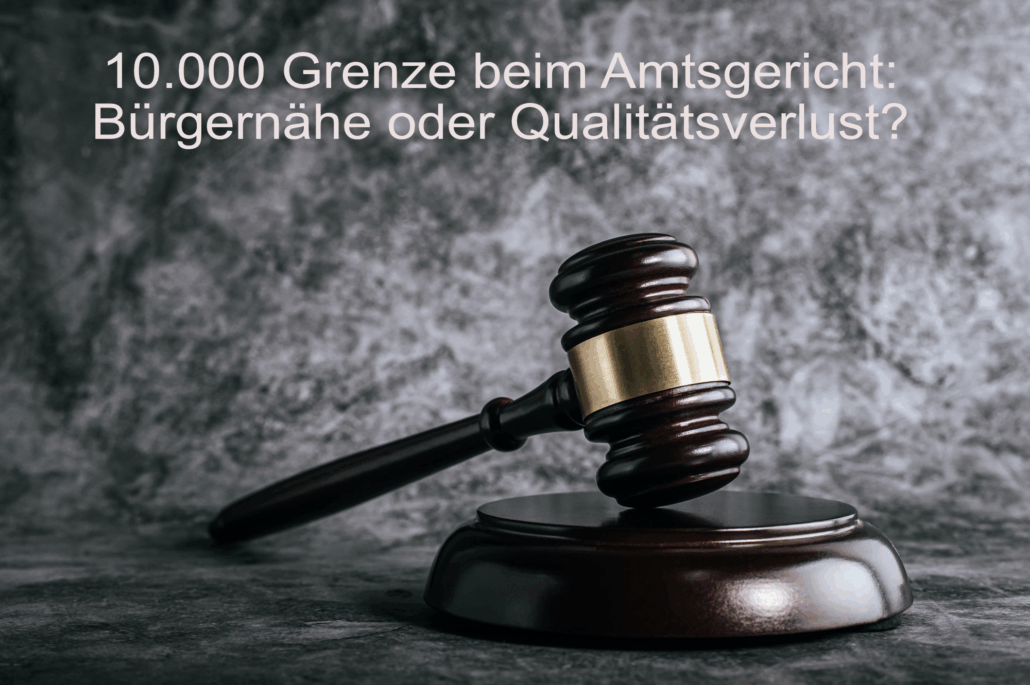LEGAL+ NEWS
For some time now, the competition association “Verband sozialer Wettbewerb” (VSW for short) has made a name for itself in particular – and it has to be said: once again. In 2017, it began to target the entire internet – especially influencers – with mass warning letters in order to – as one of its managing directors literally stated in the magazine Horizont (see article from July 22, 2018),
“to sound out what is allowed on the Internet”.
The above, as well as my own experience with the VSW in a specific case in which a young start-up company went under because the VSW had issued warnings to all of the start-up’s partners, raises the question of whether warning associations are allowed to do anything.
In the specific case I mentioned, among others, the court of first instance argued that warning letters associations are entitled to a so-called “warning letter privilege”. This would give cease-and-desist letter associations a wide scope within the scope of their cease-and-desist letter activities.
This must be clearly contradicted:
I. Warning association must respect tort law!
On the one hand, the assumption of a so-called warning privilege is already wrong in principle; on the other hand, it is unacceptable that warning associations are granted a legal vacuum.
In my opinion, a competition association must be measured against general tort law in its actions like everyone else and must be liable under the aspect of interference with the established and exercised commercial enterprise if it has caused damage to the person being warned or to an attributable third party at least negligently – and therefore culpably – in the context of a warning.
II Principles on the unauthorized use of property rights form the standard of liability for the actions of warning letters associations under competition law
The established case law of the Federal Court of Justice (BGH) on the so-called unjustified warning of property rights is a suitable starting point for justifying this liability.
These principles relate in particular to the case where, in the event of an alleged infringement of property rights, it is not the manufacturer as the alleged infringer but its customers who are warned.
This is rightly based on the idea that in such cases it is not the warned customer but the manufacturer supplying it that is hit hard. In individual cases, warnings to customers can jeopardize the manufacturer’s existence. Against this background, the BGH correctly assumed a liability for damages if the warning party takes unjustified action against customers and thereby damages the manufacturer affected by this.
This is the case when the owner of an alleged property right (e.g. patent right) demands that another company cease the manufacture or distribution of certain products on the grounds that the manufacture or distribution of these products interferes with its property rights.
In such cases, it has always been recognized by the highest courts that the person issuing the warning bears the risk that his actions were unjustified. In short: If his warning was unjustified and he can at least be accused of negligence, he is liable.
This affirmative liability is particularly justified in cases of so-called customer warnings (= the warning party does not warn the manufacturer, but its customers): This is because purchasers will generally not defend themselves, which could seriously damage the manufacturer in the event of an unjustified IP warning to its purchasers.
The considerations cited for the affirmation of liability in property right cases also apply to a large extent to warning letter cases in pure competition matters, including (in my opinion: especially) in cases of warning letter associations that purport to punish competition law infringements in the interests of competitors.
Only the Higher Regional Court of Stuttgart – according to my research – has so far made welcome findings in this regard. In its ruling of January 21, 2010 (case no. 2 U 8/09), the Higher Regional Court of Stuttgart first of all correctly determined whether a warning letter is to be assessed differently from a judicial procedural act:
“In light of the statements in BGHZ 164, 1 et seq., the party issuing the warning in competition matters is not protected by a “warning privilege” vis-à-vis a third party affected by the warning.” [Note: Emphasis by the author]
The Higher Regional Court of Stuttgart stated, among other things, the reasons for this:
“If the warning were privileged, there would be no effective means of countering a potentially existence-threatening interference in the manufacturer’s customer relationships through the unjustified warning to its customers.”
The Higher Regional Court of Stuttgart also correctly stated that the principles developed by the Federal Court of Justice (BGH) regarding unjustified warnings of property rights cannot be limited solely to warnings of property rights. The OLG Stuttgart stated:
“It is true that, unlike the person warning of an industrial property right, the person issuing the warning, like the appellant, is not entitled to an exclusive right from his own point of view, which would be suitable to exclude every competitor from using the protected object, which would reduce the force of his attack from the point of view of the person being warned. On the other hand, a warning based on unfairness would also be unbalanced if he were to draw the economic benefit from a culpable misjudgment of the scope of the right to which he is entitled without having to answer for any damage caused by this.” [Note: Emphasis added by the author]
The above considerations apply equally to the actions of competition associations. The Higher Regional Court of Stuttgart has stated this:
“Nothing else applies if it is not an individual competitor who issues a warning, but an association or club. This is because, on the one hand, such an association also represents the interests of competitors and, on the other hand, legal uncertainty would otherwise arise, as it would have to be checked in each case whether competing manufacturers also belong to the warning party or belonged to it at the time of the warning, which is in any case clear in the present case.”

III. Summary overview of the liability of warning associations
According to the above-mentioned correct statements of the Higher Regional Court of Stuttgart, it can be summarized:
- Competition associations are not entitled to a warning privilege.
- Unjustified warnings oblige the person issuing the warning to pay compensation if he can at least be accused of negligence.
- No other standard of liability is justified for the actions of warning associations. They are also liable in the event of unlawful warnings if they are at fault.
It is to be hoped that in the near future other courts will follow the very welcome findings of the Higher Regional Court of Stuttgart. It is to be hoped that the wave of VSW warnings mentioned at the beginning, which has already destroyed livelihoods, will be taken as an opportunity to do so.

LATEST ARTICLES

Up to €10,000 before the local court: why it goes wrong
Up to €10,000 in the local court – a mistake with an announcement. The planned reform of the amount in dispute will shift masses of proceedings from the regional courts to the local courts. Sounds like a relief – but will have the opposite effect.

Contract law: Stuttgart 21 and the speech clause – a lesson in clear contract drafting
Sometimes a single sentence decides billions. This is exactly what happened with the Stuttgart 21 project. At the center of the legal dispute was a short contractual provision – the so-called “speech clause”.

Breach of an international jurisdiction agreement can result in liability for damages! – On the ruling of the BGH from 17.10.2019 (Ref. III ZR 42/19)
International agreements on jurisdiction, especially if they are to have exclusive validity, generally have the purpose of protecting the party benefiting from the agreement from the often very considerable costs of a legal dispute in a foreign country.
Unfortunately, however, it is not uncommon for the other contracting party to suddenly no longer want to know about the jurisdiction agreement in the event of a dispute. The background to such a dishonest approach is – obviously – not least the potential for blackmail associated with such an approach. This is because the party that finds itself – in breach of the jurisdiction agreement – exposed to a foreign lawsuit is regularly forced to take action abroad through lawyers in order to avoid legal disadvantages. This in turn is often very expensive, with the USA being the most prominent example.
CONTACT

+49 (40) 57199 74 80
+49 (170) 1203 74 0
Neuer Wall 61 D-20354 Hamburg
kontakt@legal-plus.eu
Benefit from my active network!
I look forward to our networking.
This post is also available in: DE

